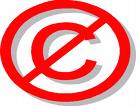 "If people had understood how patents would be granted when most of today's ideas were invented and had taken out patents, the industry would be at a complete standstill today...A future start-up with no patents of its own will be forced to pay whatever price the giants choose to impose." --Bill Gates, Challenges and Strategy Memo, 16 May 1991.
"If people had understood how patents would be granted when most of today's ideas were invented and had taken out patents, the industry would be at a complete standstill today...A future start-up with no patents of its own will be forced to pay whatever price the giants choose to impose." --Bill Gates, Challenges and Strategy Memo, 16 May 1991.
CounterPoint: There cannot be market transactions unless government defines enforceable property rights such as copyright, patents and trade marks.
Thom: They have gone way too far and therefore we have welfare queens like Bill Gates and Michael Jackson; Bill Gates with his patents and copyrights on software, the late Michael Jackson's estate now owning the Beatles library among other things, and Pfizer making billions thanks to big government. Thomas Jefferson was strongly opposed to copyrights and trademarks, although Madison did not think they should be wholly renounced. Jefferson suggested 15 years, or at the very longest, at death. From the founding of the country it was 28 years, then 40, we're almost at 100 years now, thanks to the Sonny Bono Act. I'd say they should last perhaps 3 to 5 years, or until death at the longest.
CounterPoint: Inventors ought to have full rights to profit from everything they invent.
Thom: Edison didn't really invent the electric light bulb; he added something to the inventions of thousands of people before him, and several other people invented light bulbs about the same time. The same goes for other inventions, as society reaches a stage where the next step is obvious. With copyright and patent laws, we are behaving as though that cultural commons does not exist. The big oligarchs and monopolies keep everybody else out of the market place and get the government to enforce it on their behalf.
Copyright and patents are big government programs. The drugs, medical supplies, music, movies and text books industries are making a fortune using copyrights and patents, much of which could be saved by using generics. They account for 6% of the economy.
Patents for drugs for diseases like AIDS are making the drugs out of reach of many in Africa; people are dying as a result.
CounterPoint: Companies need to recoup the costs of their research and development, or there will be no incentive to innovate.
Thom: The pharmaceutical industry claims to spend a lot on R&D, but the NIH funds a lot of the research and the companies spend three times as much on advertising and marketing as on R&D. They often only tinker with a drug to get a new patent. Requiring companies to come up with something genuinely new to get a new patent would spur invention.
There's no copyright on Wikipedia, Linux. People participate on MySpace, YouTube and Pirate Bay. Modern technology can be used to encourage participation and sharing. Copyright is supposed to encourage culture, not restrict it. Creative Commons is an alternative to copyright; Wiki is using it, Vietnam is considering it.
CounterPoint: If we get rid of copyright, then to encourage novel work we would need to create a surveillance society to see what we are reading and listening to, to decide how to divide up the tax collected on such items.
Thom: In this new digital age, it is impossible to enforce copyright and trade mark laws without monitoring the private communications of everybody on the Internet to see what they are reading and listening to.



